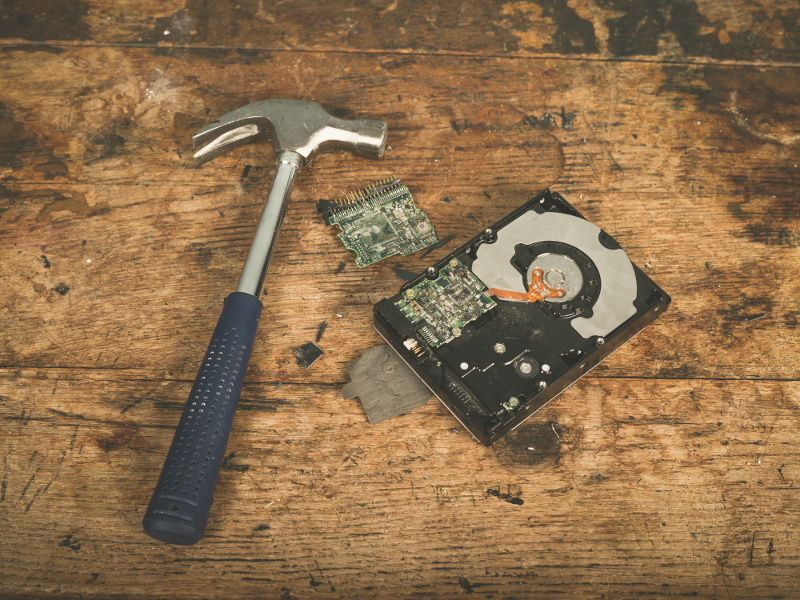The Beginner's Guide to Hard Drive Destruction
 If you're wondering whether hard drive destruction is necessary for your business, check out this blog post. Click here for more information on this!
If you're wondering whether hard drive destruction is necessary for your business, check out this blog post. Click here for more information on this!
Experts expect Cybercrime revenues to reach $1.5 trillion this year. The revenues are from data breaches, intellectual property theft, and other illegal activities.
Trading in stolen data generates $160 billion in illegal profits. The estimated income from stolen trade secrets and intellectual property is $500 billion.
One of the most important things you can do to protect your company is to secure your data. This includes company records, intellectual property, and future plans. More important than keeping current information safe, is eliminating old records and data.
Companies that fail to destroy records are at risk for breach of contract and other lawsuits. Privacy policies, compliance issues, and data-protection all come into play. Failure or delay can lead to more costs and legal expenses.
Let's take a closer look at hard drive destruction and the important part it plays in data security.
Secure Data Disposal
Secure data disposal destroys data stored on tapes, hard disks, and electronic media.
The process for data destruction hasn't changed much over the years. But, awareness of its importance for security is growing. It's an important topic every company of every size should review. There are definite risks to not destroying data.
Every company's security strategy should include disposing of sensitive or outdated information. Keep reading to learn when hard drive destruction makes sense.
When is Hard Drive Destruction Necessary?
It's a fact that data-recovery methods advance every day. Organizations use forensics experts to recover data and find evidence of cybercrime.
But the good guys aren't the only ones using data-recovery techniques. Hackers and data thieves search for hard drives that aren't secure. They find drives that weren't wiped or destroyed and harvest the data for illicit use.
Cybercrime includes property theft, industrial espionage, identity theft, insurance fraud, and more. No company should ignore a possible breach of information. There are regulations in place for hard drive wiping. Certain businesses and industries have strict rules and regulations they must follow.
Some of the U.S. regulations include:
- NIS Standards
- Department of Defense Regulations
- HIPPA
- Bank Secrecy Act
- The Patriot Act of 2002
Medical and government rules for data are rigid. Companies that don't adhere to regulations can face criminal charges. The fact that each government entity has separate rules makes compliance harder.
The best practice is to educate your employees and management. Post the regulations that affect your industry. Everyone in the company should keep data secure. Make sure employees know and understand the regulations that govern your business.
The only way to prevent cybercrime is to destroy hard drives so thieves can't access the data.
Ways to Destroy Hard Drives
Pounding an old hard drive with a hammer and throwing it in the dumpster doesn't make it unreadable. As mentioned earlier, techniques for data recovery evolve every day. That means a hard drive remains vulnerable unless it's destroyed in certain ways.
There are three ways to destroy the media that holds your data.
- Overwriting - covering up old data with information
- Degaussing - erase the magnetic field of the storage media
- Physical Destruction - disk shredding
Some companies use one, two or all three methods, based on the goal. Below are the methods of destruction considered reliable by experts.
Degauss
Degaussing is also known as data wiping. This technique wipes data from the hard drive. It passes the drive through magnetic fields or electromechanical pulses inside a chamber. This erases the data from the disk.
Degaussing is effective. Yet, it isn't a guaranteed method. If de-magnetizing doesn't reach every part of the disk, data can remain. That's why experts recommend a 2-step destruction process: degaussing combined with another method.
Degaussing chambers are expensive. Operators receive special training. This method can be too expensive, or impractical for smaller companies.
Shred
Think of a paper shredder for metal. Hard drive shredder blades tear the drive into tiny strips. The 1.5-inch strips are almost impossible to put back together. Shredders destroy many kinds of drives. It can shred one or thousands of drives at a time.
The shredder is big, bulky, and heavy. It requires a dedicated power circuit. It's isn't made for use in a regular business office.
Shredders come in a variety of models. Some destroy hard drives, electronic organizers, smartphones, tablets, and other data-storage devices.
Disintegrate
Businesses and government organizations with classified information use disintegrators. The machine uses a conveyor system with a rotary and stationary knives. Continuous cutting slices hard drives into irregular-shaped metal particles.
While a disintegrator is effective, like a shredder, it's big and heavy. It requires special power circuits. You may need ventilation to the outdoors. The machine is expensive and won't fit in a normal office space.
Crush or Mangle
Crushing, or mangling hard drives is a cost-effective method for smaller companies. Immense force destroys the hard drives. The force crushes the drive chassis and mangles the platter. The result is a virtually unreadable disk.
The manual machines use hydraulic power and a steel plate to crush the drive. Special training isn't needed to operate the crusher. It destroys one or two hard drives at a time. Electrical hard drive crushers are more expensive. They need maintenance, but little interaction.
Both manual and electric crushers have self-contained chambers for safety. They are suitable for regular office spaces. Some sizes are small enough to fit on a desk.
The Advantage of Shredding
Everyone should worry about data on recycled computers and hard drives. DIY data removal doesn't always work.
A study of drives for sale on eBay revealed recoverable data on half of them. You must deliberately remove data by overwriting, physical disk destruction, and degaussing.
The best way to protect sensitive data on old hard drives is destruction. Shredding the disk guarantees no one can recover or misuse the information.
But what if your company can't accommodate a shredder on site? Don't worry, you have options.
In-house Vs. Outsourced Data Destruction
Many companies outsource hard drive destruction. It makes sense given the size and cost of data destruction equipment. While outsourcing is easy and convenient, there are risks.
Offsite Destruction
If your data moves off-site for destruction you don't see what happens next. Make sure you research any service you use. Ask lots of questions and get answers to the following questions:
- Is Transportation Secure?
- How are Employees Screened?
- Is the Facility Monitored 24/7?
- What Data Destruction Methods are Used?
- Does the Service Provide a Certificate of Destruction?
Remember, using an outside service doesn't mean eliminate responsibility for potential legal liability. If the proper protocol isn't followed, it causes problems.
Onsite Destruction Service
You can outsource your data destruction and still have it done onsite. A service that comes to your business eliminates the transportation risks. Your staff doesn't spend time and effort delivering drives to a data destruction facility. You cut out any liability that can occur during transport.
Mobile hard drive destruction service brings the equipment to your place of business. Destroy your sensitive data without it ever leaving your location. You can watch the destruction process, and know the data was securely destroyed.
Professionals manage and document the entire process. Here's what you can expect:
- Project Manager Reviews Information
- Quote for Services
- Data Destruction Appointment Set
- Mobile Shredding Operation Unit Arrives at Your Business
- Team Collects Hard Drives with Verified Chain of Custody
- Serial Number Audit Prior to Shredding
- Mechanical Shredding Onsite
- Certificate of Destruction
- Hard Drive Remains Removed and Recycled
Protect your business every time you have a hard drive you don't need anymore. Whether the drive is unreliable or obsolete, secure data destruction is essential. Destroy every drive with sensitive data on it to protect your business.
Choose NCWS for Reliable Data Destruction
If you want to guarantee your data isn't compromised, call NCWS. We neutralize data theft and remove liability. Our two-step process makes sure your data isn't accessible ever again.
First, we degauss the drive to erase the data. After data removal, we mechanically shred the hard drive. Nothing on the drive is retrievable. NCWS documents every data destruction process with an official certificate of destruction. We note the serial numbers of each hard drive we shred.
If you need to get rid of equipment, contact NCWS for a free data destruction quotation. We keep your business in compliance and give you peace of mind.
